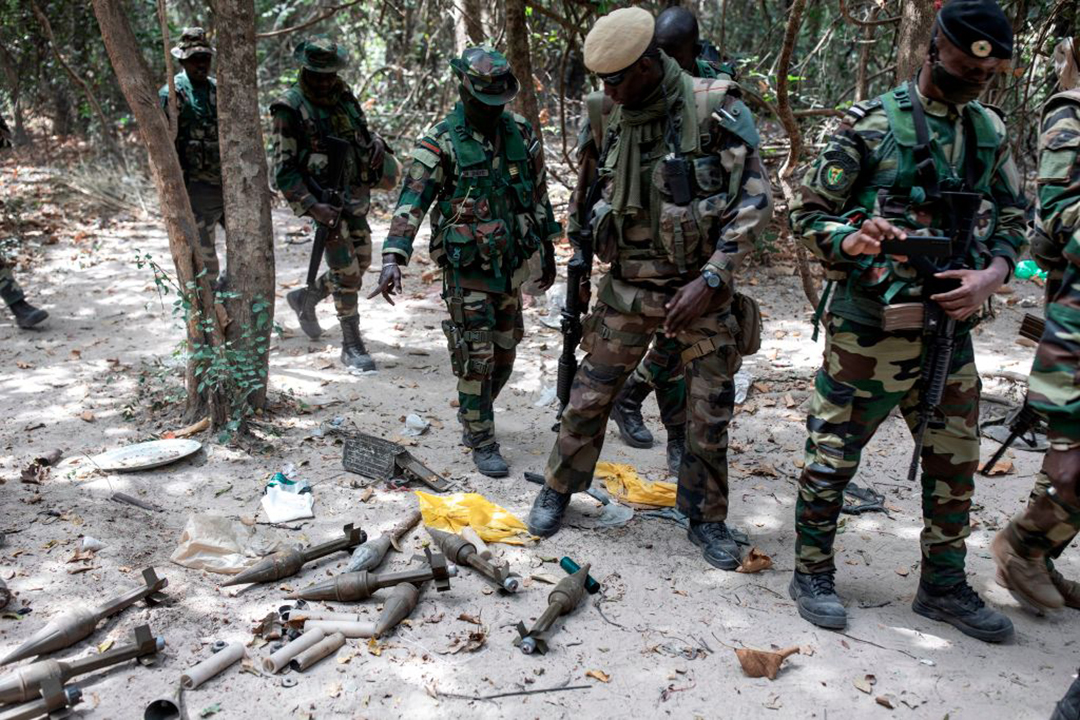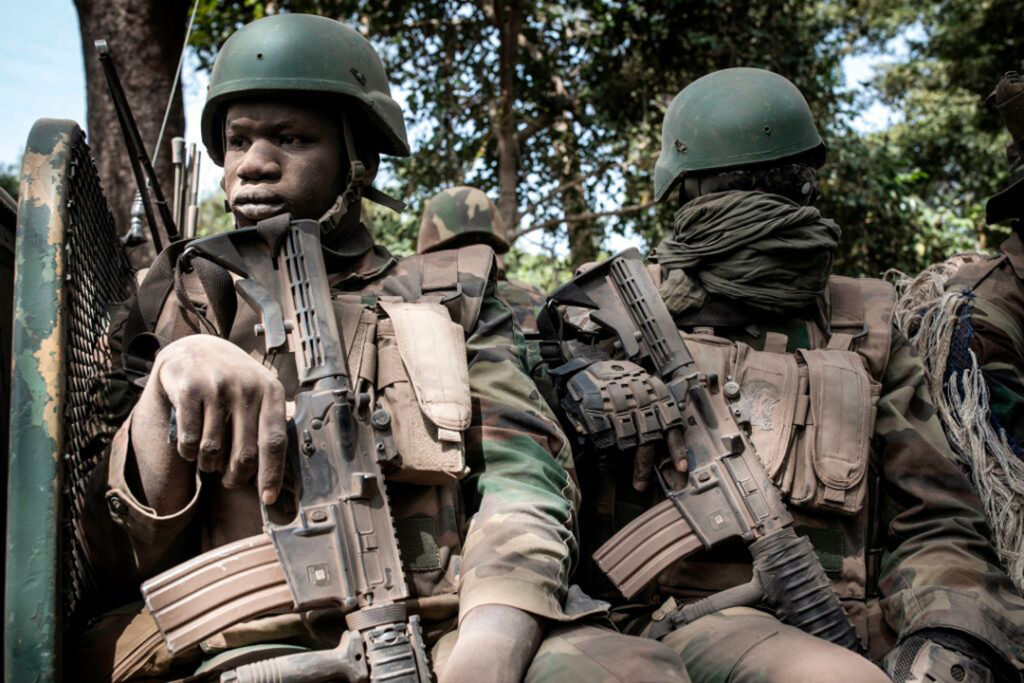ADF STAFF
Residents of Senegal’s restive Casamance region are voicing hope after a military offensive drove rebels out of forest strongholds.
In January, the Senegalese Armed Forces launched a campaign in the southern region to root out separatists known as the Movement of Democratic Forces of Casamance (MFDC). The ground strikes, backed by air support, destroyed three rebel bases. In May, Senegalese forces began another campaign about 30 kilometers south of the regional capital, Ziguinchor.
Senegalese commanders let reporters view the abandoned bases where fleeing rebels left behind anti-tank rockets, land mines and AK-47s. Soldiers also uncovered underground bunkers used by the rebels.
“Numerous abuses have been perpetrated against the population in this area, and the armed groups are simply seeking to ensure their ability to exploit forest resources,” Col. Souleymane Kandé, commander of Senegal’s fifth military zone, told Radio France Internationale (RFI). The MFDC controlled timber and cannabis trafficking in the region. During the February offensive the Army discovered several hectares of hemp fields it said “fed the criminal economy.” The conflict has raged for nearly 40 years. Casamance is culturally and geographically distinct from the rest of Senegal because it is separated from much of the country by The Gambia. During the colonial era, it was a Portuguese colony, and some locals speak a language known as Upper Guinea Creole. Casamance residents have long complained of being left behind in terms of economic investment and social services, leading some to support independence. However, decades of fighting and abuses against civilians have eroded support for the MFDC.

In early 2018, the rebel group was accused of executing 14 young men in the town of Borofaye. About the same time, armed men in the town of Diouloulou stopped a van full of European tourists and sexually assaulted three women.
Many in the region now long for peace. “We very much wish for an end to the rebellion,” Bailo Coly, who fled his home due to the conflict, told Agence France-Presse. “It has done us a lot of harm, delaying the region by 50 years and creating social rifts.”
In the past, Senegal alleged that MFDC rebels received material support from allies in Guinea-Bissau and The Gambia. However, the current heads of state of both countries have expressed support for Senegal, leaving MFDC with few allies inside or outside the region.
Fighting has displaced tens of thousands of people over the years who are eager to return. However, the Senegalese Army cautioned that land mines still pose a threat in some areas.
One man, Yaya Bodian, was overcome with emotion after returning to his home village of Bouniack after it was liberated by the Senegalese Army.
“It’s the village where I took my first steps, where I went to school in the 1990s,” Bodian told RFI. “It brings tears to my eyes and goose bumps to see again the land that my parents and I abandoned 30 years ago.”

